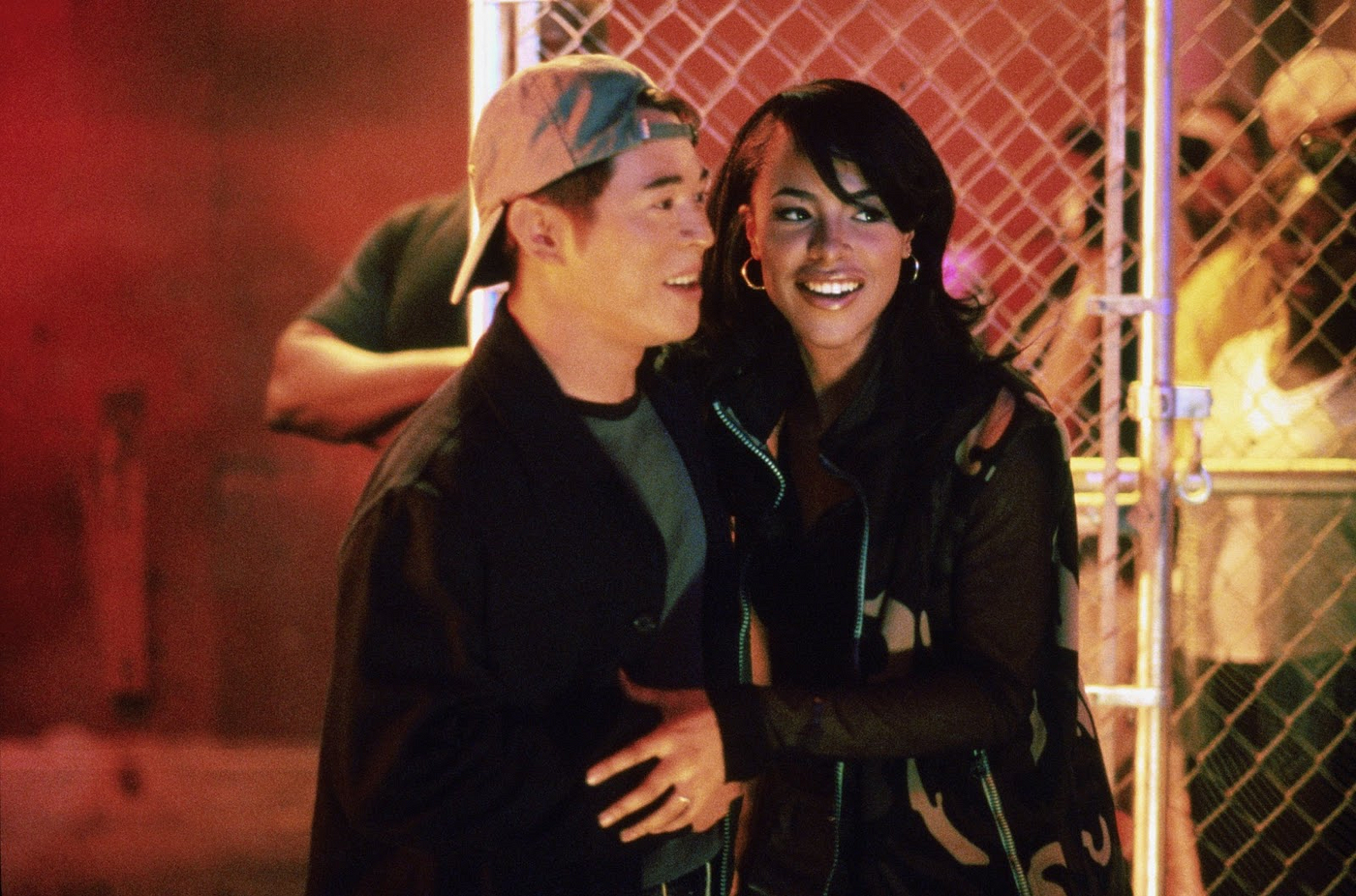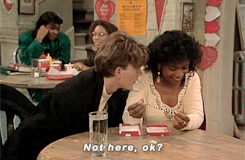There were moreDMX and Drag-On?
You are using an out of date browser. It may not display this or other websites correctly.
You should upgrade or use an alternative browser.
You should upgrade or use an alternative browser.
Is Aaliyah and Jet Li the most unrealistic movie couple in history?
- Thread starter Koba St
- Start date
More options
Who Replied?get these nets
Veteran
They snuck him in the storyline in a slick way. Fredi was biracial, and he was her cousin attending a college nearby.All them brehs on the Hillman campus from nerds like Dwayne, to frat boys and she does this
cornercommission2k12
so this were u dudes went
I remember them saying they actually did kiss but they cut it out to make the movie acceptable in the Asian market as that market wouldn't go for one of their huge stars kissing a negro woman.
Chrishaune
Veteran
I remember them saying they actually did kiss but they cut it out to make the movie acceptable in the Asian market as that market wouldn't go for one of their huge stars kissing a negro woman.
There's a lot of asian dudes that got put on Aaliyah off this movie and stan her.
Why couldn't Jet Li kiss Aaliyah
By Jason Lim
Recently, major Hollywood movie studios have released stills from movies that showed Tilda Swinton playing a character who was a Tibetan male mystic in the original Marvel comics and Scarlett Johansson as Motoko Kusanagi in an adaptation of the original Japanese anime, "Ghost in the Shell." Not unexpectedly, this created a huge uproar in the Asian-American community and accusations of "white-washing," replacing original Asian characters with white actors in movies.
Not being a comics or anime fan, I have to admit that I am largely ignorant of the storylines in the original works. But I am also not emotionally invested in those storylines, which perhaps gives me another perspective on this issue by asking a question.
Is the original Asian ethnicity or cultural construct essential to the storytelling?
If yes, then I believe the role should go to an Asian actor who would bring more authenticity to the role. For example, If Tilda Swinton is really playing a male Tibetan monk, then I don't think she is the right casting choice, just as David Carradine looked out of place in Kung Fu.
But this might not apply to ScarJo in "Ghost in the Shell." If being a Japanese woman is not essential to the storytelling, then the whitewashing criticism is misplaced. We aren't talking about a white actress in yellowface wearing a kimono speaking in an outrageous accent here, which would be rightfully offensive today. We are speaking about a woman who is wrestling with the existential question of what makes a human being as she undergoes transformation into a cyborg. Not a uniquely Japanese problem.
Switching this around, no one complained about whitewashing when Spike Lee remade "Old Boy" in a different cultural context. When "Seven Samurai" was remade into "The Magnificent Seven," no one complained either. What about "The Departed" from "Internal Affairs?" In the other direction, when Kurosawa remade "King Lear" in a Japanese cultural context, he cemented his reputation as a filmmaker.
What I am thinking is that the underlying complaint behind this debate is not whitewashing per se, but an absolute lack of opportunities for Asian actors to showcase their talents in ethnic-agnostic roles. So, when there are traditionally Asian roles that are then given to white actors, then the lack of opportunity becomes that much more acute and painful.
Which makes this into a different problem that I want to explore by asking another question: Why couldn't Jet Li kiss Aaliyah in "Romeo Must Die?"
Believe me, as an Asian-American guy, I desperately wanted Jet Li to get it on with Aaliyah. If Kevin Costner can hook up with Whitney Houston, then why couldn't Li?
We all know why. As related by Jose Antonio Vargas in The Washington Post: "The original ending had Aaliyah kissing Li, a scenario that didn't test well with an ‘urban audience.' So the studio changed it. The new ending had Aaliyah giving Li a tight hug. Says Cajayon, ‘Mainstream America, for the most part, gets uncomfortable with seeing an Asian man portrayed in a sexual light.'"
And why is that? Because non-Asians can't identify with Asian characters. They can't see themselves in the character's shoes. To be emotionally engaged in a story, you have to be able to see yourself as the protagonist, fighting the dragons, killing the enemy, getting the love of your life, being a Wall Street tyc00n, or being The Natural.
However, Asians are pigeonholed into certain specific archetypes ― martial artists, Geishas, nerds, doctors, engineers, IT geeks, etc. ― in order to be "believable." Of course, this isn't specifically an Asian challenge. Blacks, Hispanics, and other ethnicities are likewise typecast as certain characters who speak to our collective preconceptions.
This is the essential nature of white privilege. Whites are the only ethnic group that can be believable and authentic in whatever roles they play because they are not labeled with societal preconceptions about who they should be, what they are good at, and how they should behave. Not carrying the weight of a label allows you the freedom to be anything. This happens because we are living in a dominant sociocultural construct that white Europeans have built over the past few centuries. In other words, their subjective experience has become the objective norm for all of us.
This is neither good nor bad. It just is. Any changes to a dominant sociocultural construct happen very slowly. And we all play a part in this construct.
As an Asian-American, I can emotionally identify more easily with Jon Snow in "Game of Thrones" because he's white. But what if he were black or Hispanic? Would I still be able to do so as easily? Would "Game of Thrones" be as popular across the world if it were set in a Chinese context during the Warring States Period? Probably not, although it would be far more exciting.
While popular culture has an important role to play in shaping societal preconceptions, it shouldn't be relied on to do so. Sidney Poitier only comes to dinner very rarely.

Last edited:
KingsOfKings
❄️ 𝟐𝟐𝟕, 𝖂𝖍𝖊𝖗𝖊 𝖜𝖊 𝕬𝖙 𝖂𝖎𝖙𝖍 𝕴𝖙! ❄️
i'm convinced natalie portman is a closet dike in real life. She never has any chemistry with her male leads in any of the films shes done.Nah, Padme and Anakin in the prequels got them beat. They had the chemistry of the Eight Tray Crips and the Rolling 60s in 1986.
She need to just play a lesbian in all her future roles.
GPBear
The Tape Crusader
Idk the romantic arc in Crash where they all fukk at the scene of accidents is still weird as shyt to me

At least they made a point of it though....
This was realistic due to the colorism at Hillman

WaveMolecules
Superstar
Beyoncé and Mike Meyers in Austin Powers.
*Gets script*
''Finna kiss up on Aaliyah ''
*Reads script*


Problematic Pat
Superstar
That's how they get down at real HBCUsAll them brehs on the Hillman campus from nerds like Dwayne, to frat boys and she does this

Kyle C. Barker
Migos VERZUZ Mahalia Jackson
Problematic Pat
Superstar
But divestors said......nvmI remember them saying they actually did kiss but they cut it out to make the movie acceptable in the Asian market as that market wouldn't go for one of their huge stars kissing a negro woman.
